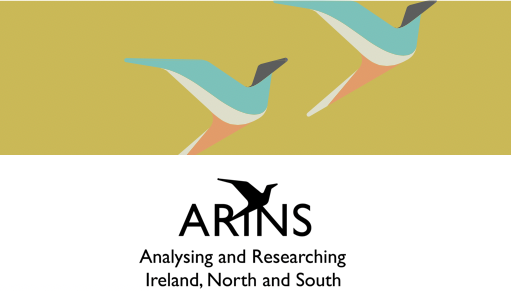
This past week, The Irish Times published the results of twin polls conducted in the Republic of Ireland and Northern Ireland in collaboration with ARINS – Analysing and Researching Ireland North and South – a joint initiative of the Keough-Naughton Institute for Irish Studies at the University of Notre Dame's Keough School of Global Affairs and the Royal Irish Academy, an all-island body.
The simultaneous polls, conducted in August and September of this year among 1,000 voters in each of the two states, surveyed respondents’ views on the question of a united Ireland, the future of the Northern Irish state, and related political issues.
The results show that if a vote were held on Irish unification at present, voters in Northern Ireland would choose to remain part of the United Kingdom by an overwhelming majority, with only 27% choosing to unify with the Republic of Ireland compared to 50% in favor of remaining in the UK.
While voters on both sides of the border favored a referendum on the potential unification of the island, the gulf between voters in the two states appears wider than commonly supposed. Of those polled in the Republic, 66% would support unification with Northern Ireland, more than twice the number among voters north of the border.
When broken down according to each voter’s religious background, the results in the North are surprising. While voters from a Protestant background would opt overwhelmingly to remain within the United Kingdom, Catholic voters were unexpectedly split. Just 55% would choose to unify with the Republic of Ireland, and 21% preferred to remain part of the UK, the same number as those who responded “I don’t know.”
Prof. Brendan O’Leary, chair of the ARINS public opinions committee, spoke at the Keough-Naughton Institute last month ahead of the publication of these results, and emphasized the important role that undecided voters and those he calls “wobblies,” voters who change their minds more than once, will have in any future referendums on the subject. O'Leary's team targeted these undecided voters, or "persuadables," in a dedicated focus group aimed at understanding their views and concerns, which revealed economic issues, identity conflicts, and security concerns as central elements in their calculus.
Indeed, the polls in both states have revealed the undecided voters to be a key constituency, and one who may hold the balance of power in Northern Ireland if a vote becomes reality. Voters there who expressed a religious background of “Other” will also prove significant, with more than a third (35%) against unification and another third on the fence.
Taken together, these results suggest that voter education should be a high priority in both camps ahead of any referendum if the chaos of the UK’s Brexit vote is to be avoided. With so many undecided voters, providing clear options with predictable outcomes will be critical to a smooth process regardless of the result. Further, they indicate that the political landscape in Northern Ireland is shifting along lines other than those sharply drawn by religious background.
As a key initiative of the Keough-Naughton Institute, the ARINS project facilitates regular research illuminating the varied economic, political, and social factors at play in the complex landscape of Irish border relations in the twenty-first century. For more information on ARINS and to explore the latest research and publications, visit www.ria.ie/arins. To hear Prof. O'Leary discuss the poll results with Irish Times political editor Pat Leahy, click here.